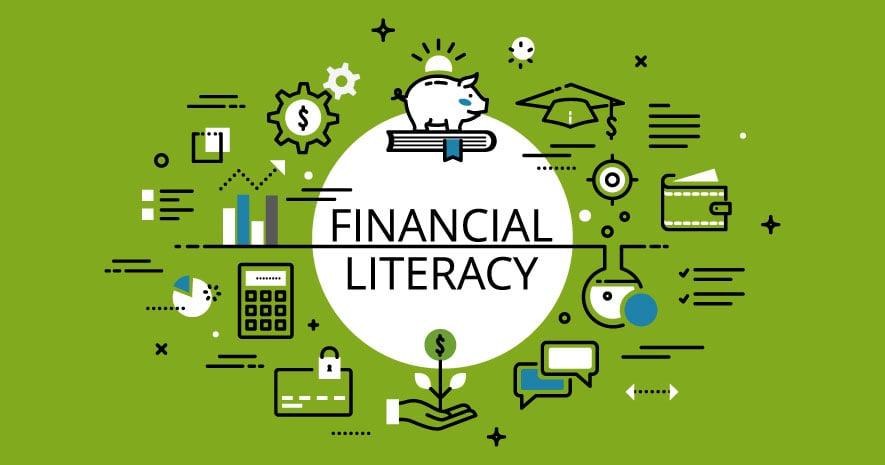In the contemporary landscape of wealth management, the transfer of assets across generations is an intricate process that extends beyond mere financial transactions. As the global economy continues to evolve, the role of education in preparing heirs for wealth inheritance has emerged as a critical component in ensuring the sustainability and growth of family fortunes. This analytical exploration delves into the multifaceted nature of educational strategies designed to equip heirs with the requisite skills, knowledge, and mindset to navigate the complexities of inherited wealth. By examining the intersection of financial literacy, emotional intelligence, and ethical stewardship, this article seeks to illuminate how targeted educational initiatives can empower the next generation to uphold and enhance their family legacies with confidence and competence. Through a comprehensive analysis of current practices and emerging trends, we aim to underscore the pivotal role education plays in shaping heirs who are not only prepared to manage wealth but are also poised to contribute positively to society at large.
Understanding the Educational Foundations for Responsible Wealth Management
For heirs stepping into the realm of wealth inheritance, a solid educational foundation is paramount. This education goes beyond traditional academic subjects and delves into areas that are crucial for effective wealth management. Understanding financial literacy, grasping economic principles, and learning about investment strategies are essential components that equip heirs with the knowledge needed to manage wealth responsibly. These subjects provide a comprehensive understanding of how wealth can be sustained and grown over time.
- Financial Literacy: Equips heirs with the ability to make informed financial decisions, manage budgets, and understand financial statements.
- Economic Principles: Offers insights into market dynamics, inflation, and the impact of economic policies on personal wealth.
- Investment Strategies: Guides heirs in diversifying portfolios, assessing risk, and identifying lucrative investment opportunities.
Furthermore, an education in ethical considerations and philanthropy is crucial. By instilling values such as social responsibility and ethical investing, heirs are prepared not only to preserve wealth but also to use it as a force for positive change. This holistic approach to education ensures that heirs are not only financially savvy but also mindful stewards of their inheritance.

Cultivating Financial Literacy and Ethical Decision-Making Skills in Heirs
Financial literacy is a cornerstone for any heir stepping into the world of wealth inheritance. It involves more than just understanding balance sheets and investment portfolios; it is about making informed choices that align with long-term goals. Educational programs tailored for heirs should encompass key areas such as:
- Budgeting and Financial Planning: Understanding how to manage everyday expenses and plan for future needs.
- Investment Strategies: Gaining insights into diversified investments and risk management.
- Taxation and Legal Frameworks: Navigating the complexities of tax obligations and legal responsibilities.
Beyond financial acumen, instilling ethical decision-making skills is paramount. Heirs must be equipped to handle the moral dimensions of wealth with integrity. This involves cultivating a mindset that prioritizes sustainable practices and philanthropy. By embedding ethical considerations into their decision-making processes, heirs can transform their wealth into a force for positive change, ensuring that their legacy is not only prosperous but also principled. In essence, the education of heirs should create a harmonious blend of financial expertise and ethical responsibility, preparing them for the challenges and opportunities that come with their inheritance.

Integrating Practical Experience with Theoretical Knowledge for Future Success
As heirs prepare to inherit significant wealth, the synergy between practical experience and theoretical knowledge becomes paramount. A robust education serves as the foundation for this integration, offering a blend of classroom learning and real-world application. Theoretical knowledge provides heirs with the fundamental principles of finance, economics, and wealth management, ensuring they understand complex concepts that govern their future assets. On the other hand, practical experience enables them to apply these concepts in real-life scenarios, fostering decision-making skills and financial acumen.
- Internships and apprenticeships: These opportunities allow heirs to work alongside seasoned professionals, gaining insights into day-to-day operations and strategic decision-making.
- Mentorship programs: Pairing heirs with mentors who have navigated similar paths can offer personalized guidance and a deeper understanding of wealth management intricacies.
- Hands-on financial projects: Participating in projects that require budgeting, investing, or business planning can enhance practical skills and confidence.
By effectively merging these educational elements, heirs are better equipped to manage and grow their inherited wealth, ensuring a prosperous legacy for future generations.

Strategic Recommendations for Tailoring Educational Programs to Heirs Needs
To effectively prepare heirs for the responsibilities of wealth inheritance, educational programs must be customized to meet their unique needs and aspirations. One strategic approach is to integrate personalized learning paths that align with the heir’s individual interests and career goals. This involves conducting comprehensive assessments to identify their strengths, weaknesses, and passions, enabling a tailored curriculum that fosters engagement and motivation.
In addition, it is crucial to incorporate practical financial education that goes beyond traditional classroom settings. Consider including:
- Workshops and seminars led by experienced financial advisors and industry experts.
- Real-world simulations that provide hands-on experience in managing investments and understanding market dynamics.
- Mentorship programs that connect heirs with successful entrepreneurs and philanthropists.
By embedding these elements into educational frameworks, heirs can develop a profound understanding of wealth management, empowering them to sustain and grow their legacy responsibly.



